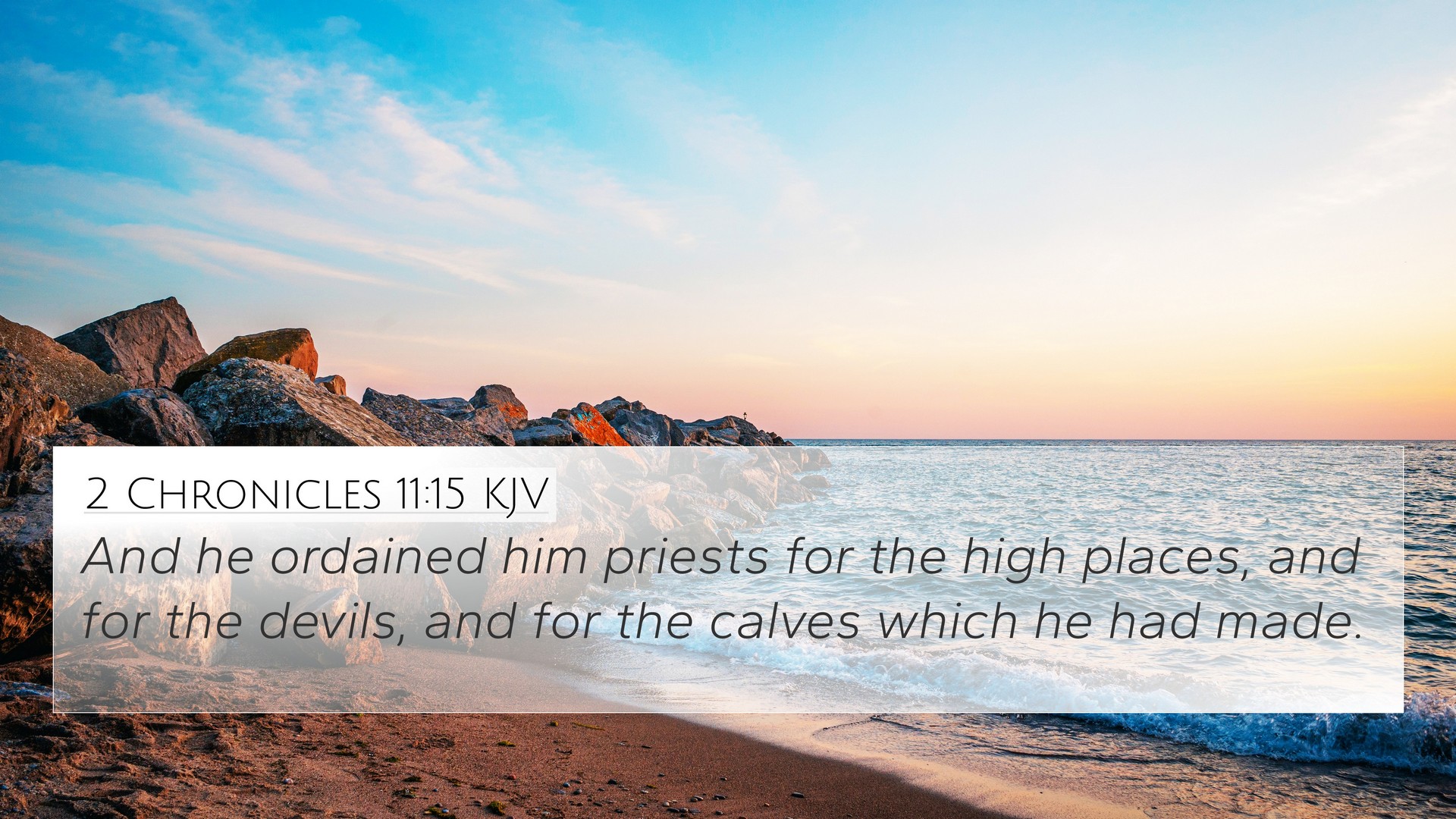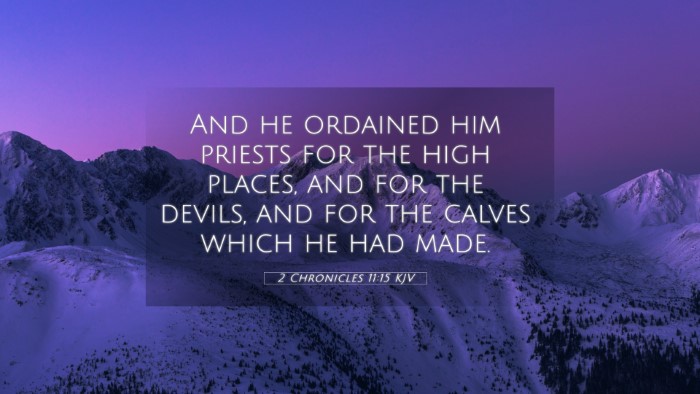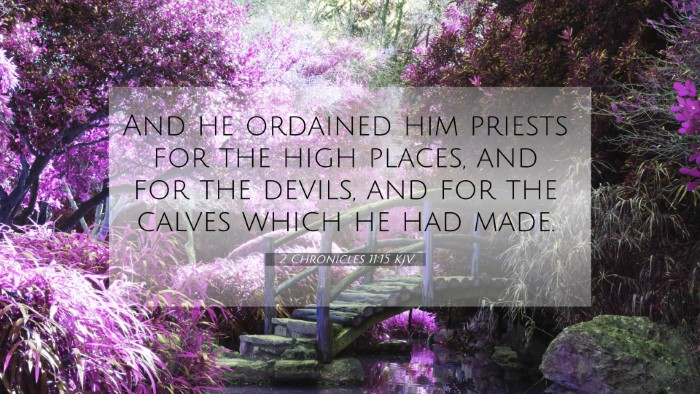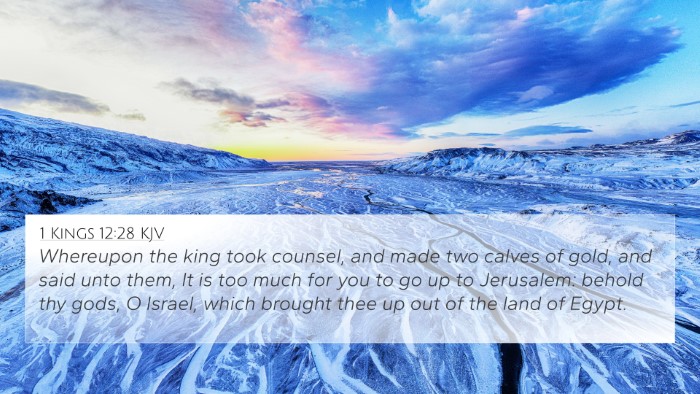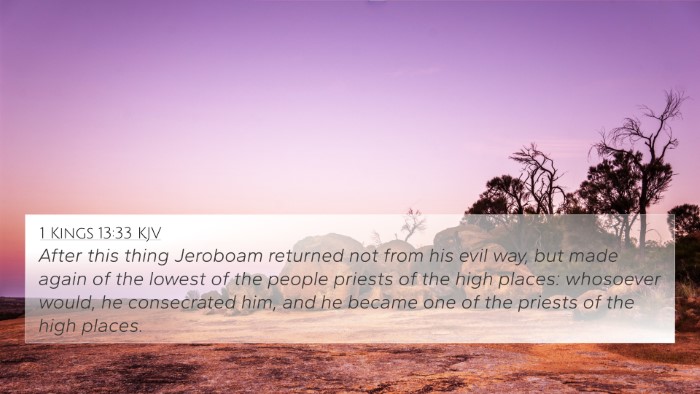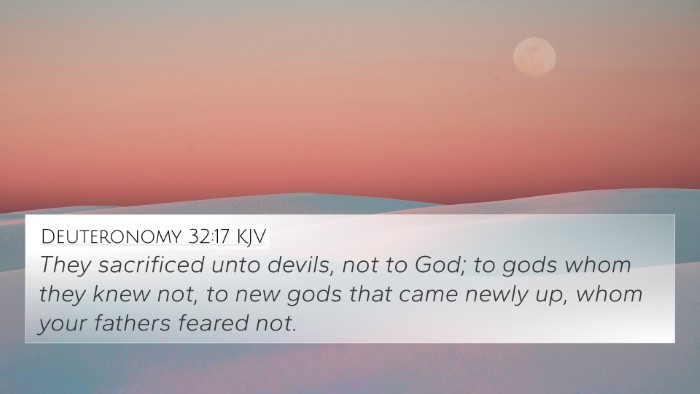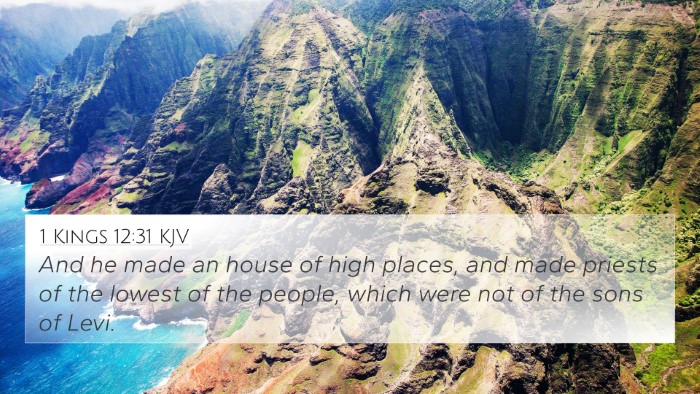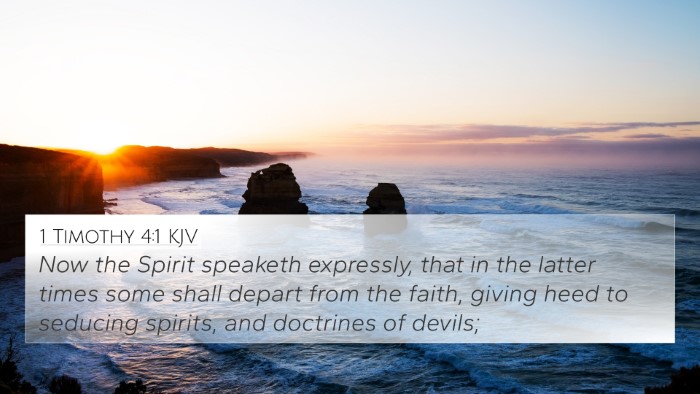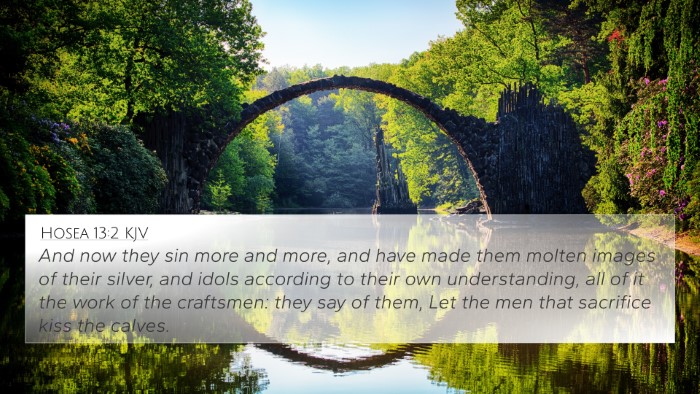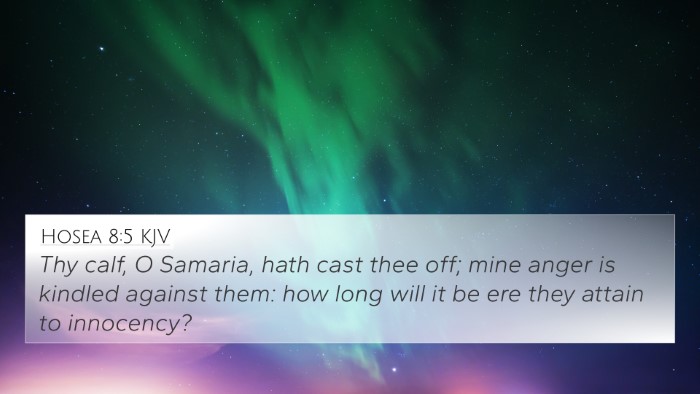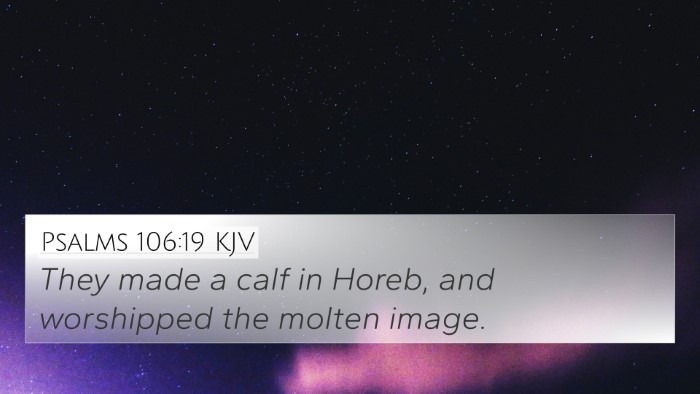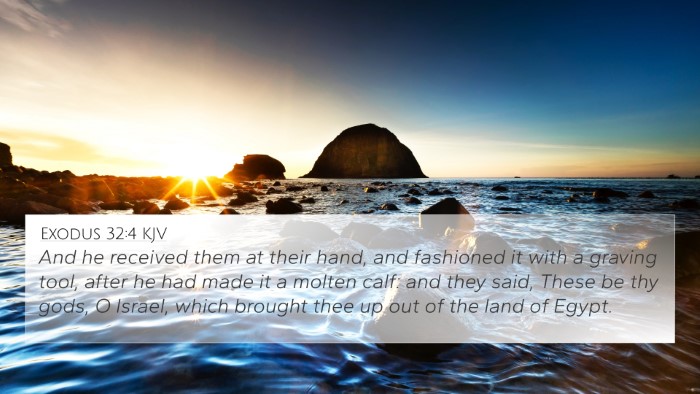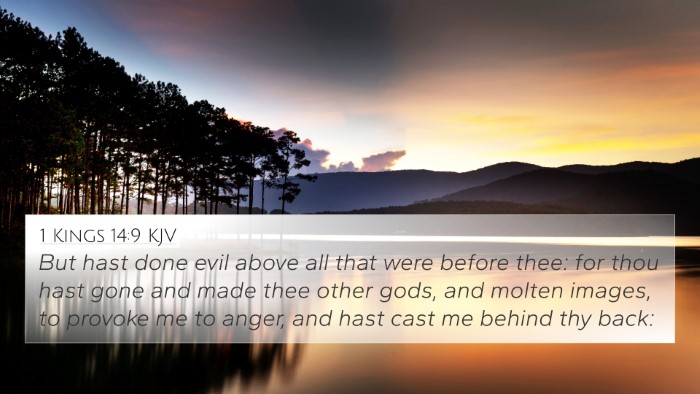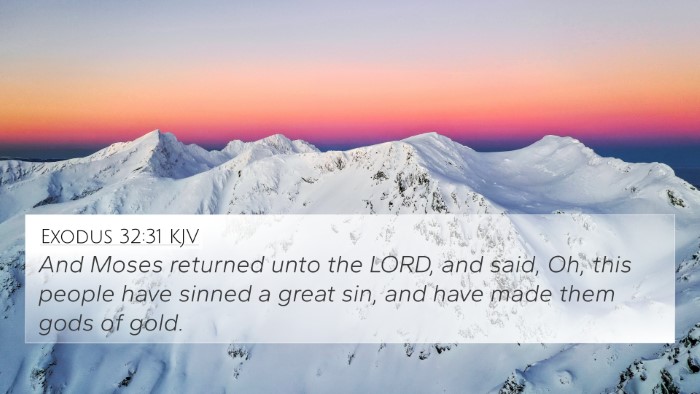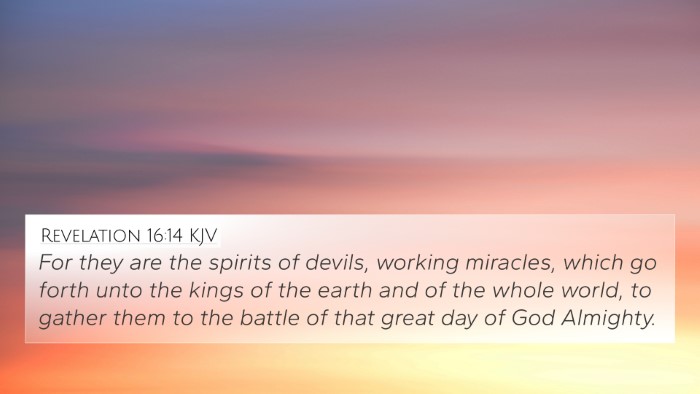Understanding 2 Chronicles 11:15
Verse: "And he ordained him priests for the high places, and for the devils, and for the calves which he had made."
This verse highlights the actions of Jeroboam after the division of the kingdom of Israel. In this passage, Jeroboam establishes a new religious system in the Northern Kingdom, which deviates from the worship of Yahweh in Jerusalem.
Interpretative Summary
The passage can be understood through a multi-faceted lens, referring to the establishment of false worship, the significance of priestly roles, and the consequences of idolatry.
- Establishment of Idolatry: Jeroboam creates a religious system that worships golden calves, highlighting significant themes of idolatry and leading the people away from the true worship of God (Exodus 32:4).
- Priestly Ordination: He ordains priests who were not from the lineage of Levi, thus violating biblical ordinances regarding priesthood (Numbers 18:1-7).
- High Places: The reference to "high places" indicates the propensity for worship in locations deemed convenient, often associated with pagan practices (2 Kings 17: high places).
Thematic Connections
The verse relates to various themes within the Bible, showcasing the importance of fidelity to God's commandments versus the temptation of idolatry. Below are some thematic connections:
- 1 Kings 12:28-30: Details Jeroboam’s decision to make idols for Israel, revealing the rejection of God's command.
- Exodus 20:4-6: Commandment against making graven images, illustrating the violation of God's law.
- 2 Kings 17:7-18: Discusses Israel's eventual captivity, stemming from their idolatry and rejection of Yahweh.
Bible Cross-References
Below are several cross-references related to 2 Chronicles 11:15, offering opportunities for deeper study into Jeroboam’s actions and their implications:
- 1 Kings 12:26-29 – Jeroboam's decision to set up golden calves.
- 2 Kings 23:15-16 – The destruction of the idols established by Jeroboam.
- Hosea 8:5-6 – A prophetic denunciation of Israel's idolatry.
- Jeremiah 7:18 – Critique of idolatrous practices in ancient Israel.
- Micah 1:5 – The roots of idolatry and its societal impact.
- Amos 8:14 – Warning against reliance on false worship.
- Ezekiel 36:26 – The promise of restoration and true worship.
Comparative Bible Verse Analysis
This verse invites a comparative analysis with other scriptures that elaborate on themes of rebellion against God and the consequences of such actions:
- Exodus 32:1-35: Reflects on the people’s descent into idolatry during Moses’ absence.
- Romans 1:21-23: Discusses humanity's exchange of the truth for lies, paralleling Israel's actions.
- Hebrews 10:29: Condemns willful sin, which resonates with Jeroboam's choices.
Tools for Bible Cross-Referencing
For those who wish to delve deeper, there are numerous resources available for cross-referencing and studying biblical texts:
- Bible concordance for locating relevant verses.
- Bible cross-reference guides to facilitate thematic studies.
- Comprehensive Bible cross-reference materials for in-depth academic research.
Inter-Biblical Dialogue
This verse prompts a discussion about idolatry both in ancient Israel and in contemporary faith practices, encouraging believers to reflect on their worship and loyalty to God. The examination of Jeroboam’s choices helps in the context of understanding how scripture addresses themes of obedience, leadership, and faithfulness.
Concluding Thoughts
2 Chronicles 11:15 serves as a poignant reminder of the dangers of turning away from God and erecting false systems of worship. It emphasizes the critical need for faithfulness to divine commandments and the perilous consequences that come from disobedience. In studying this passage, believers can better appreciate the interconnectedness of biblical themes and the timeless relevance of God's word.
